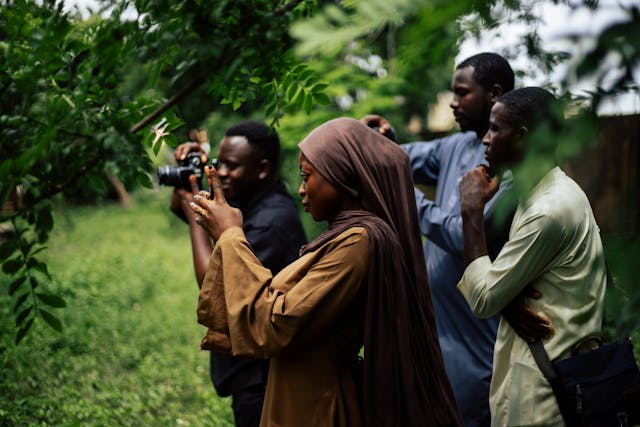With growing participation from the corporate sector, the media environment in Mauritania is slowly changing toward one that is more liberal and open. Currently, the country has among Sub-Saharan Africa’s most cutting-edge media regulations.
Press freedom has improved substantially in the last ten years: Mauritania ranked 99th out of 178 countries in 2010; by 2024, it had risen to 33rd out of 180. Even with this development, obstacles abound. Journalist Hanevy Ould Dehah, editor of the website Taqadoumy, was arrested in 2009 for presumably violating public standards; his sentence was arbitrarily extended, drawing worldwide condemnation. Mauritanian journalists could still face bans for content considered against Islamic values. Some radio and TV journalists faced crackdowns following the 2008 military coup, though some independent channels like Le Calame and La Tribune continued to work with somewhat freedom. Many times, self-censorship, economic vulnerability, and restricted access to trustworthy sources impair the caliber of journalism. Low compensation makes many journalists vulnerable to influence from political or commercial organizations.
However, particularly in print media, freedom of expression is said to be booming under the present regime. One of the most widely read books are sensationalistic periodicals known locally as “peshmergas. ” Prominent newspapers include Akhbar Nouakchott (Arabic), Le Calame (bilingual), Chaab (Arabic), Horizons (French), and Nouakchott Info (French). While Al-Mourabit and Rajoul Echaree also keep constant circulation, the Journal Officiel acts as the government’s official record. Though changes made in 2010 opened private investment, state dominance persists in the broadcasting industry.
Initiated in 1980, Télévision de Mauritanie (TVM), the national broadcaster, today runs several thematic channels. Among these are those devoted to youth and academics, art, and sports. TVM introduced a fourth channel dedicated to parliamentary affairs and institutional openness in March 2025. TVM has six regional stations serving local audiences besides its core national broadcast.
Radio broadcasting continues to be mostly under state authority; Radio Mauritanie serves as the major operator, broadcasting in both Arabic and French. On FM frequencies in large cities like Nouakchott and Nouadhibou, though, international stations like BBC World Service and Radio France Internationale are also reachable.
Among the news sources in the nation are the state-run Mauritanian News Agency (AMI) and the independent Agence Alakhbar, which releases in Arabic as well as French.
Regarding telecommunications, privatized in 2001, Mauritel still controls fixed-line services. With almost 70% of city dwellers owning mobile phones, mobile coverage is mostly metropolitan. With its activities in additional African countries including Gabon, Mali, and Burkina Faso, the Moroccan company Maroc Telecom is quite important in Mauritania’s telecom industry.
Although Mauritania’s media has advanced significantly in transparency and pluralism—especially in the print and online spheres—structural problems like censorship, economic instability, and limited rural access still hamper the full potential of the industry.




